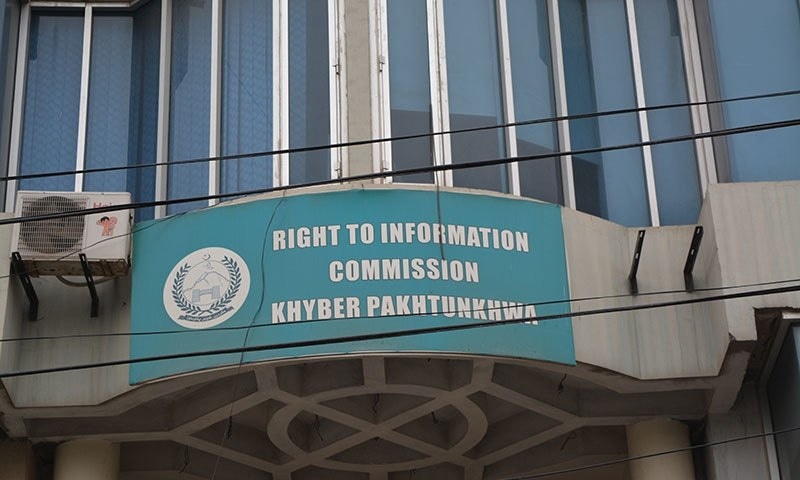PESHAWAR: The Khyber Pakhtunkhwa government has been dragging its feet on the appointment of chief information commissioner of the Right to Information Commission (RTIC) even three months after completion of tenure of the entity’s former head, sources said.
The commission, set up under the KP Right to Information Act 2013, is headed by chief information commissioner and comprises two commissioners, including one from legal background and the other from civil society.
The sources said that former chief information commissioner Azmat Hanif Orakzai completed his tenure on August 3 and the provincial government was yet to appoint his successor. In the meanwhile, Mah Talat, one of the commissioners, also retired on November 9.
“The provincial government seems to be oblivious of the fact that following the retirement of both the officials the RTIC even has lost the quorum to decide disposal of complaints,” a source said.
He said that section 25(4) of the KP RTI Act 2013 states that “while deciding a complaint, the Information Commission shall consist of at least two members or one member and the chief information commissioner and the decision of the commission shall not be invalid on the ground of existence of any vacancy.”
RTIC has been without head for last over three months
He said that in the current scenario the commission was completely rudderless and in case the appointments were not made on time, its staff would not be able to draw their salary for the next month.
He said that RTIC was set up under the RTI Act 2013, which was the PTI government’s first major legislation after taking power in the province, and the government should not overlook its working and smooth operation.
A senior government official requesting anonymity told Dawn that the former chief information commissioner was partly responsible for the delay in appointment of his successor as he was interested in continuing in his post and since this was not allowed in the existing law, he even wanted to amend the law, which was turned down by the government.
Another source blamed another senior official, who allegedly wanted to secure the seat of chief information commissioner, for putting the file in cold storage. However, he said that the official later had a change of heart.
Mohammad Anwar, executive director of the non-governmental Centre for Governance and Public Accountability, said that currently there was no procedure outlined in the law for appointment of the entity’s chief and commissioners.
He said that under section 24 of the KP RTI Act 2013, the government was bound to set up information commission on the commencement of this act within a period of 120 days, headed by chief information commissioner and comprising two information commissioners.
However, he said that no provisions were given after initial setting up of the commission. Mr Anwar said that one of the drawbacks of appointing chief commissioner several months after the departure of his predecessor was that proper handing over of the office would not take place.
He said that leaving institutions without proper head for months also eroded public trust in them.
A senior official requesting anonymity told Dawn that names of possible candidates for the vacant positions had been shared with the provincial government.
Regarding appointment of the commissioner, the official said that the issue was taken up with the advocate general through law department, as the post required appointment of a senior advocate of apex court or high court, who is eligible to become judge.
He said that the advocate general had shared names which would be placed before a scrutiny committee.
Sources said that names of three retired senior government officials were on the summary which was currently with the chief minister for approval.
However, one of them got another job and two former secretaries were in the run for the top position, they said.
Published in Dawn, November 24th, 2019














































